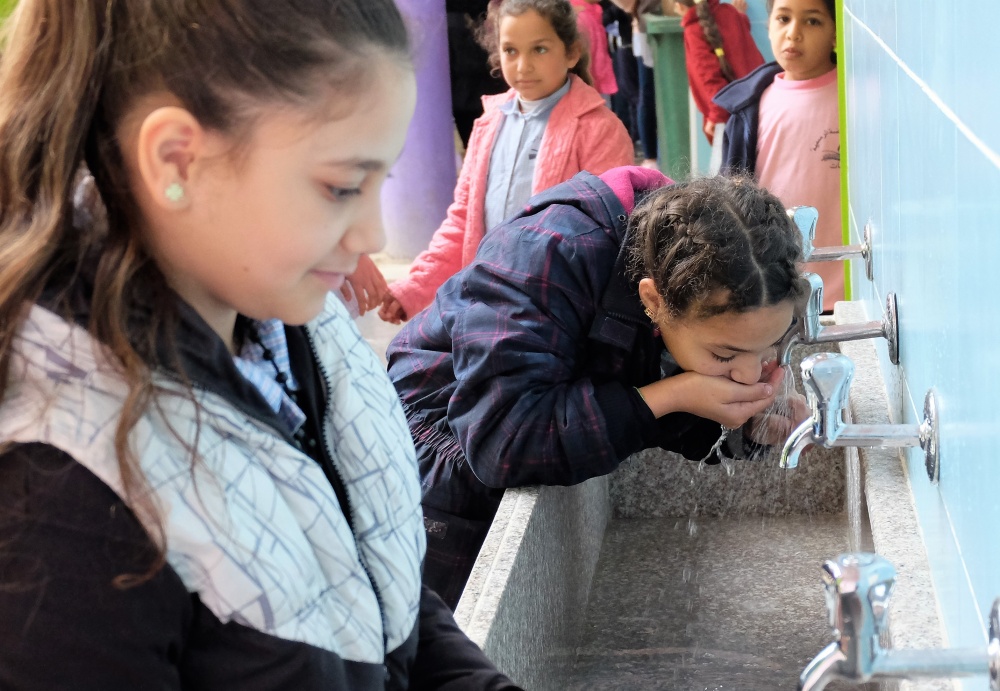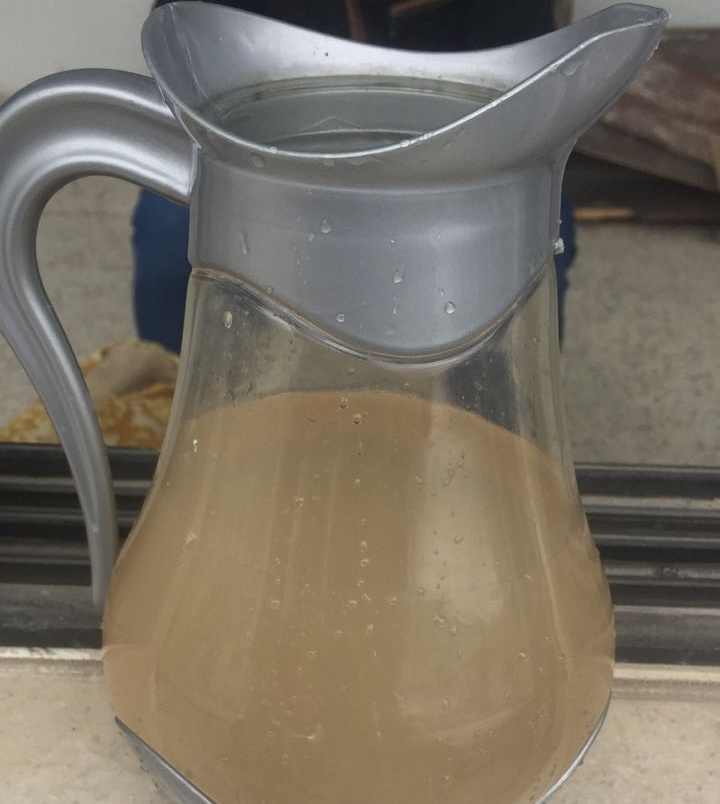The Koura region in northern Lebanon was one of our operational sites in 2018. Prior to our intervention, the inhabitants of the 14 communities had access only to heavily polluted water. Although there were pumps feeding water from the Qadisha River into the pipes, the drinking water treatment plant had not been fully operational for years.
Drinking water in bottles - an expensive alternative
The water quality was so bad that you could already smell and see it. Those who could afford it bought bottled water. Other families, including the majority of Syrian families who fled violence in their home country, often had no choice but to drink the polluted water.
The local arche noVa team conducted a needs assessment and interviewed individual families. "Some even reported worms in the water," says our project manager Karin Uckrow.
Where the water was less turbid, most used it at least for washing and personal hygiene. All in all, the supply situation was unsatisfactory for the people and, in addition to all the other worries in an economically dependent region, an additional financial burden.
Rehabilitation of the municipal water supply system
Our team therefore repaired the water system. In the central town of Kusba el Koura, the treatment plant was renewed. 42,000 people, refugees and locals, have a safe and affordable water supply since then.
Contaminated water endangers health
Koura is not an exception. According to a study by the World Bank on water quality, Lebanon's surface and groundwater suffers from a high level of pollution from untreated wastewater discharges, improper waste disposal and agricultural runoff. The contaminated water can transmit diseases such as cholera, diarrhoea, dysentery, hepatitis A, typhoid fever and polio. It is particularly dangerous for those who are already weakened by food shortages, injuries and disease.
Water project for communities and schools
Our current WASH project, to which we are calling for donations on the occasion of this year's World Water Day, should reach a total of 60,000 people. To this end, we are renewing other municipal water systems, repairing water and sanitation facilities at schools and improving drainage. In addition, there are hygiene activities with the distribution of the necessary materials such as soap, disinfectants, buckets and toilet paper as well as training courses for the school communities involved.
Our project region is located directly on the Lebanese-Syrian border. Living conditions are difficult. Since the outbreak of violence in the neighbouring country, the economy has been going downhill. The Syrians who have fled here seldom succeed in finding a suitable job. There is great poverty. Especially in the informal tent accommodation the hygienic conditions are catastrophic. Conflicts over scarce resources are part of everyday life.














